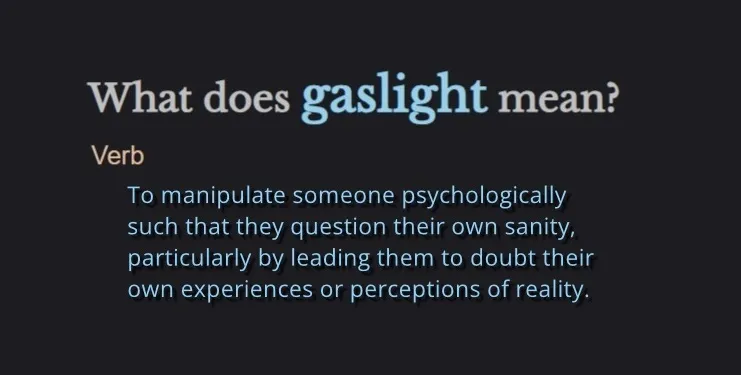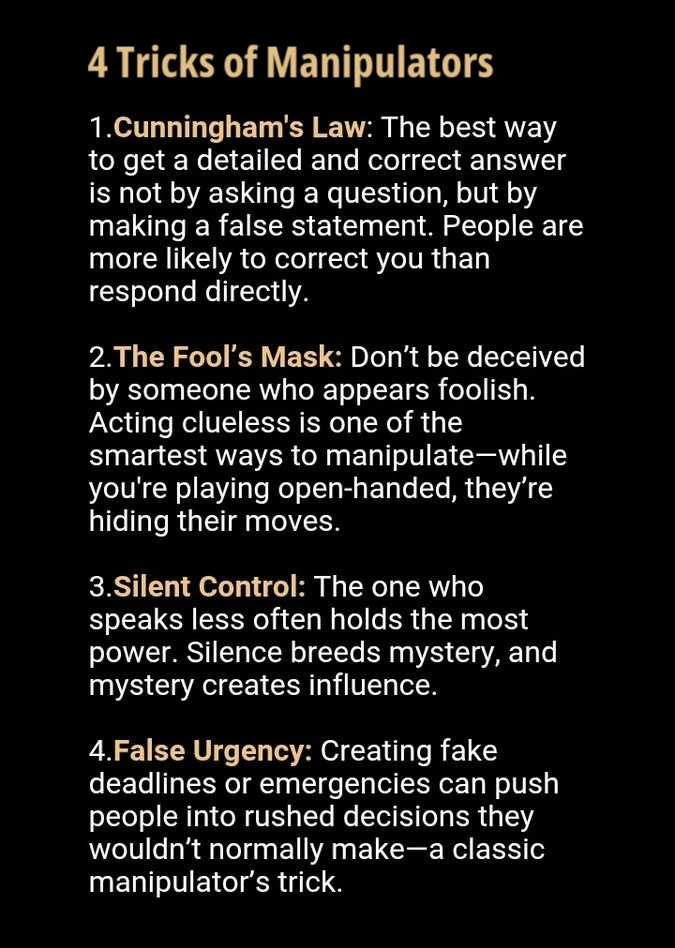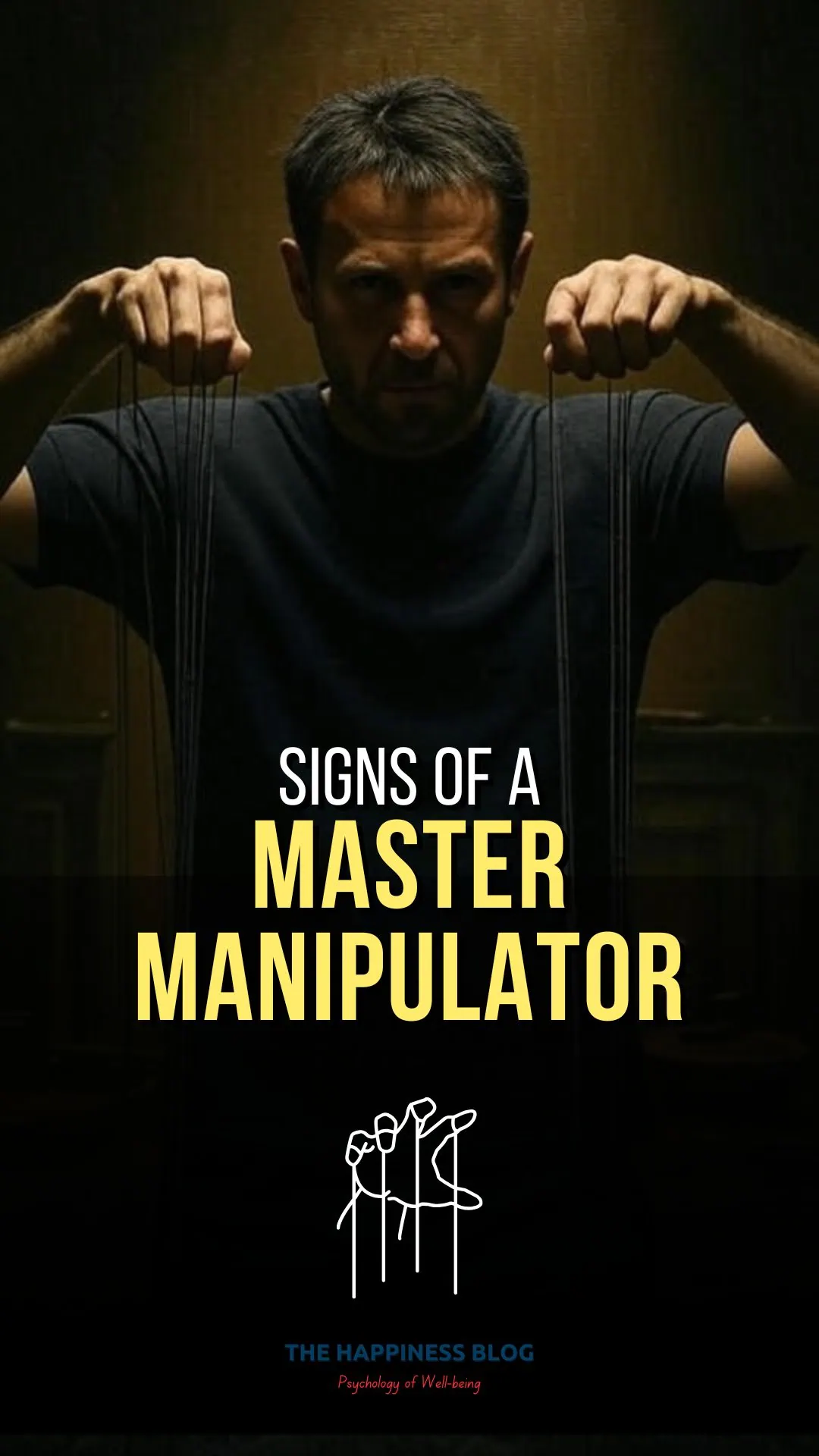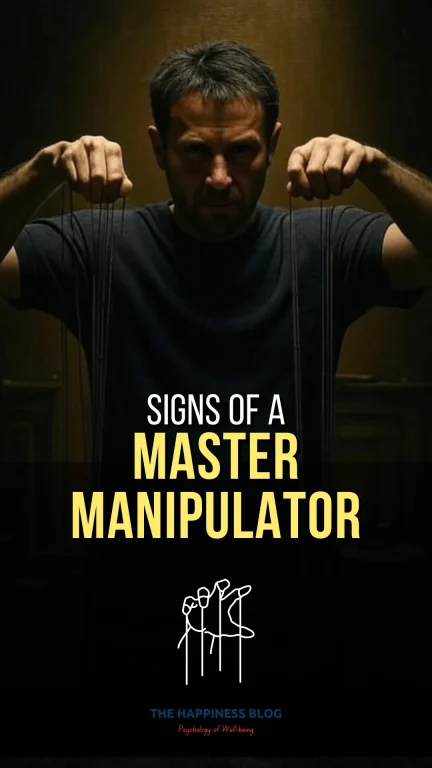Today's Saturday • 7 mins read
People often try to trick you, but you can usually tell. But some manipulators are a whole different story.
You cannot tell when they start and finish their game. You just do what they ask you to do without any questions. Later, when you realize they duped you, you wonder why their requests were so compelling!
These master manipulators are dark operators of human psychology. Most of them have traits of narcissism, psychopathy, and Machiavellianism:
- They are emotionally cold yet mentally calculative.
- They misuse your trust and politeness to benefit themselves.
- They demand much larger returns for the little favors they do for you.
- They are experts at weaponizing charm, intelligence, and persuasion tactics.
Read on to know the unobvious signs of master manipulators, and stop them before they do terrible things to your life.
Signs of A Manipulator: Dark Psychology Tricks They Use
1. Gaslighting and Reality Distortion
Gaslighting is perhaps the most insidious weapon in a manipulator’s arsenal. It works slowly, subtly, for months and years until you start doubting your own reality.

- The purpose of gaslighting is to put you in a state of constant confusion and self-doubt so you lose your clarity and sanity of thinking.
- They will feed you false stories about others, making you mistrust and push away some of the most supportive people in your life.
- They will systematically question your memories and experiences, to the point that you start to distrust your own judgment.
Master manipulators use gaslighting to slowly wear you down. Over time, you begin to question your own perceptions, beliefs, and experiences.
They chip away at your confidence and self-esteem, making you more and more dependent on their version of reality. Eventually, you start trusting them as your only source of truth.
2. Calculated Decision-Making
Master manipulators have ultra-methodical approaches. They will plan for weeks or months before carrying out their goals. They carefully weigh the risks and chances of failure first.
Plus, they devise target-specific plans, keeping their target’s weaknesses in mind. This makes them particularly dangerous as opponents.
Four of their dark psychology tricks are:
- Cunningham’s Law: Human tendency is to correct inaccurate data and prove our expertise, because false or incomplete information makes us anxious (cognitive dissonance). Machiavellian manipulators use this like experts. They will purposely tell us false information so that we rush to correct them. And in doing so, we often blurt out secret information to them that we normally wouldn’t have shared with them.
- The Fool’s Mask: The fool’s mask (“playing dumb”) causes us to downplay the potential danger of the manipulator. Passive-aggressive people and covert narcissists often use it. They fake ignorance or incompetence to manage impressions. When we think someone is simple, naive, or dumb, we presume they can’t harm us. So we lower our defenses. This lets them see our weak spots right up close. Plus, when we catch them manipulating us, they escape accountability by saying they were just “naive.”
- Silent Control: Silence can be a tool of psychological dominance. By speaking less, manipulators create uncertainty, prompting others to fill the void with concessions or self-disclosure. This works on the “power of scarcity” in social dynamics: people value (or fear) what they cannot easily interpret. Usually seen in dictatorial personalities or those with high emotional detachment.
- False Urgency: Fake deadlines trigger stress-induced compliance, as they engage the brain’s fight-or-flight response. Under pressure, people rely on heuristic thinking (mental shortcuts) rather than rational thinking, which makes them easy to trick. This is often used by antisocial and opportunistic individuals.

3. Emotional Detachment
Both narcissists and Machiavellians share this critical trait: they are unable or unwilling to truly care about how other people feel.
This emotional detachment allows them to make decisions that others would find morally questionable without experiencing guilt or remorse.
They view relationships as transactional tools rather than meaningful connections, focusing solely on what others can provide them.
4. Accountability Avoidance
Master manipulators will deflect responsibility for their mistakes and wrongful actions. It’s their default.
They know what accountability means, but they choose not to accept it because doing so could make them lose control and hurt their self-image.
Instead, by shifting the blame, they can keep up their “holier-than-thou” appearance and avoid any real consequences. This also means they don’t feel the need to change their behavior for the better.
Each time they are caught after a mistake, you find them saying things like, “Not my fault. If it weren’t for [that person/situation], I wouldn’t have acted this way.”

5. Grandiose Self-Importance
The narcissistic manipulators hold an inflated sense of their own significance and achievements. That’s called grandiosity.
They believe they deserve special treatment for just being there, without having to work to earn it. They often boast about their achievements to prove their entitlement.
Actually, their grandiosity is a mask for their underlying insecurity of being average. All that self-promotion and self-glorification is to tell others they are superior to average achievers.
6. Charm and Love Bombing
Master manipulators are skilled at managing first impressions and appearing charismatic.
They may initially shower you with excessive attention and affection through a technique called “love-bombing.”
This creates an illusion of an intense bond, but once you become attached, they pull back, leaving you desperate for their validation.
This calculated approach keeps their targets emotionally dependent.
7. Exploitation Without Remorse
Manipulators have no morality or conscience.
They don’t hesitate to use people for personal gain without remorse or guilt. Especially narcissists and Machiavellians see others as resources to be exploited rather than humans deserving dignity.
They can deceive people and exploit their efforts and resources without ever feeling the need to express gratitude or pay back.
Manipulators also prioritize long-term strategic gains and keep emotional distance. This lets them avoid vulnerability when they exploit others’ emotional investments.
8. Exceptional Adaptability
Like chameleons, master manipulators are highly adaptable to changing circumstances.
When their audience or scenarios change, they change. When one strategy fails, they pivot to a new strategy to serve their goals.
This flexibility makes them formidable:
- First, because this reduces their chances of a grand failure.
- Second, their target may feel they are winning against the manipulator when the manipulator has changed the rules of the game.
9. Crave Constant Admiration and Control
Narcissistic manipulators have a high need for attention and praise. They crave to be the center of attention and feel slighted when sidelined.
They also have a strong need for control. And they get upset when people don’t do what they ask for or when situations don’t unfold as they prefer.
So, they are mildly manipulative when people are compliant. But get authoritatively pushy when people resist.
10. Passive-Aggressive Communication
Manipulators often express their disagreements and frustrations through negative behaviors instead of direct, honest communication.
They will give the silent treatment, make sarcastic remarks, or use backhanded compliments.
These create a tense atmosphere that keeps the other person walking on eggshells, terrified of the manipulator’s anger and willing to sacrifice themselves to please them.
Final Words
How to protect yourself from a master manipulator?
As soon as you see signs of manipulation in someone’s behavior, start moving away from them.
If you don’t, they will eventually parasitize your life. They will get close to you, exploit you in gradual steps, and look for ways to push you out of your home and business.
TLDR: Spot the signs early. Keep your distance.
• • •
√ Also Read: How Machiavellians Ruin Your Happiness & Peace?
√ Please share this if you found it helpful.
» You deserve happiness! Choosing therapy could be your best decision.
...
• Disclosure: Buying via our links earns us a small commission.
